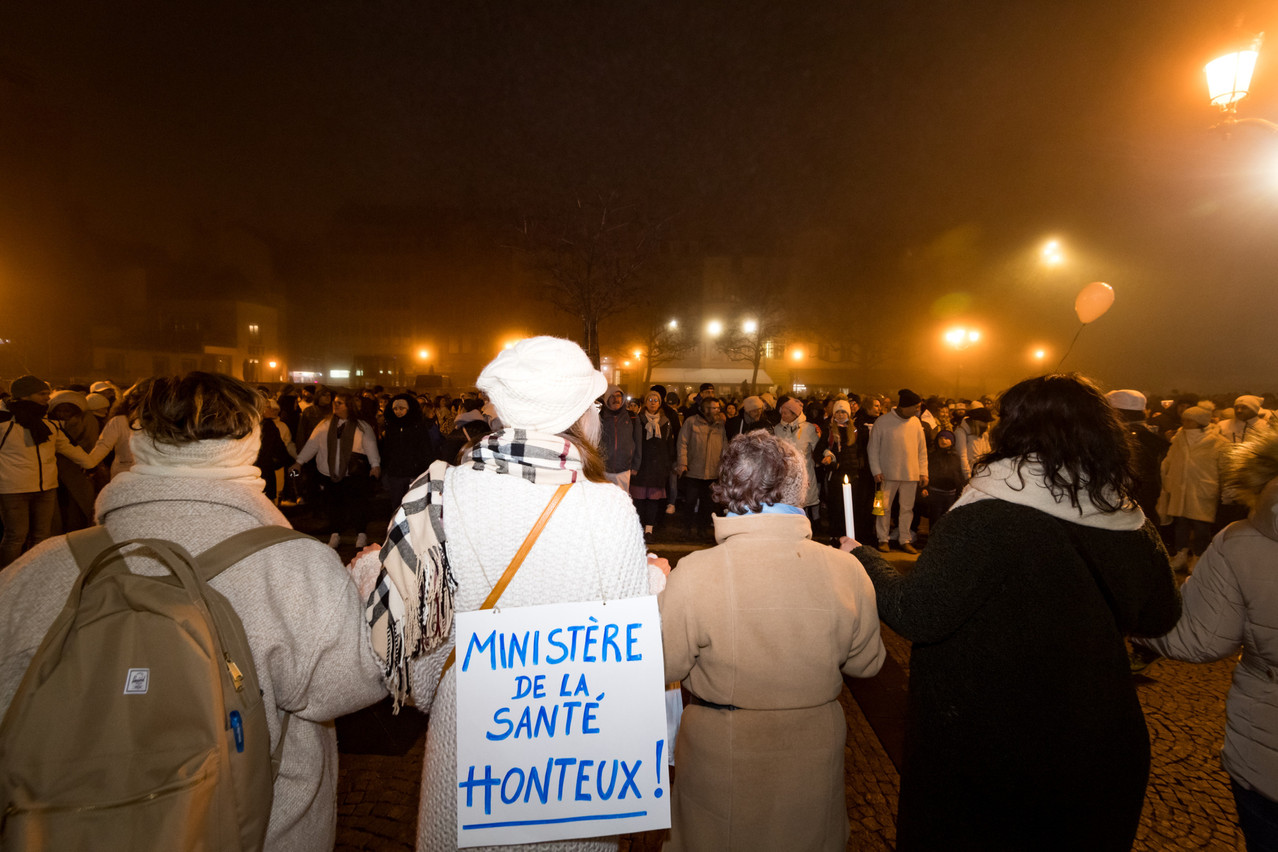Last Saturday, there were several outbursts during a demonstration against the new covid-19 health measures. There were also comparisons of the current restrictions to the Nazi period and the use of the Jewish star. The Luxembourg Foundation for the Memory of the Shoah has expressed its indignance about this in a press release. Its president had already deplored such analogies in an on the subject, published on 21 November, following a silent white march.
Paperjam: On social networks and during demonstrations, one can observe opponents of the government’s anti-covid measures comparing the situation of non-vaccinated people to that of the Jews during the Second World War, even going so far as to evoke the wearing of the yellow star. What is your reaction?
Laurent Moyse: Everyone has the right to demonstrate against the decision of a state according to their opinion. We are in a democracy and freedom of expression is a fundamental right. But it is totally unacceptable to draw parallels, as some do, with the Shoah. This trivialisation is absolutely condemnable, it amounts to a distortion of history, and it goes much too far. The fact that you feel bullied because you believe that the state wants to control your own life is one thing, but to put yourself in the same bag as someone who has been deported or exterminated, that has nothing to do with it. It’s totally inappropriate.
I think we need to act in a more general way, starting with education.
Why is the Shoah being mentioned and not another historical event?
For those who are steeped in conspiracy theories--and fortunately not all opponents of the anti-covid measures are--there is a background of antisemitism. You can find people with extreme opinions and revolting thoughts in demonstrations or on social networks. Sometimes it is pure ignorance and these people have not thought about the consequences of what they say. But sometimes there is a motivation to use this kind of vile comparison to deliberately provoke. There are not enough words to condemn this attitude.
What can you do about it?
Unfortunately, it is very complicated to bring these attitudes and statements to court. I think we need to act in a more general way, starting with education. We need to explain from a very young age what happened in history and the dangers that can happen again. I believe that schools also have a major responsibility in teaching young people to be informed, to cross-check their sources and to have a critical mind. People have been spreading information since the beginning of the pandemic that has, in some cases, never been verified, and this is a global problem that does not only concern covid-19.
Politicians also have their share of responsibility?
Yes, a reaction from the public authorities is essential. The Luxembourg government is preparing an action plan against antisemitism; we are waiting for it to be submitted to us. It is an obligation that comes from the European Union: several international bodies have pushed the member states to act, to define a strategy to fight against antisemitism. The Council of Europe has come out with a whole series of recommendations.
I would say that antisemitism has surged on social networks and in demonstrations.
Do you have the impression that antisemitism has increased since the beginning of the pandemic?
I would say that antisemitism has surged on social networks and in demonstrations. It never disappeared: after the Second World War it was rather latent, but then it came back, and nowadays it is extremely present in many countries. It is extremely worrying, and the fight against antisemitism will become a priority for democracies, because we are unfortunately seeing a repetition of history.
What does that mean?
As soon as there is a major crisis, whether it is economic, social or a pandemic, as it is now, people look for an explanation and it is not always rational. It’s about finding a reason for what’s happening, and when they can’t explain it, they go after the classic culprit, who is the one who is other or different. Antisemitism has always been steeped in clichés, in conspiracy theories that see Jews as the ones who dominate the world, the ones who bring disease.
Are you worried about future generations?
I have a mixed feeling. I am worried about the current development of things. Hate and prejudice prevail again as soon as a crisis occurs, and that is worrying. And I think that the next generations will not escape this. But we also see in societies salutary reactions from organisations and individuals who go against these tendencies and who do their best to enlighten people. So I am not deeply pessimistic, but I am not blissfully optimistic either. There is still a lot of work to be done. We should not be under any illusions: there will always be individuals who will provoke, but we must circumscribe these phenomena, because with social networks, this is taking on enormous proportions. Today, people shut themselves up in bubbles, there is no longer any dialogue possible, the tone rises and we immediately move on to insults.
This story was first published in French on . It has been translated and edited for Delano.
